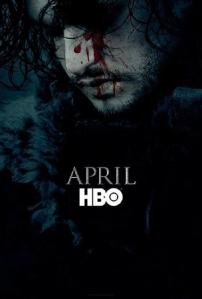 Game of Thrones has ended. There will be no more episodes. It would have been impossible for the writers to wrap up every single plot thread in Season 8, especially because this past season had fewer episodes (6 instead of usual 10). The final episode, “The Iron Throne,” did manage to provide a sense of closure for most of the character arcs and had some incredible visual moments. However, in its rush to the end, the final episode lost sight of some of the political commentary and themes that made Game of Thrones so compelling in the first place. The raison d’être for this story is question “what makes for a good king?” The finale barely engaged with that question, which is a missed opportunity.
Game of Thrones has ended. There will be no more episodes. It would have been impossible for the writers to wrap up every single plot thread in Season 8, especially because this past season had fewer episodes (6 instead of usual 10). The final episode, “The Iron Throne,” did manage to provide a sense of closure for most of the character arcs and had some incredible visual moments. However, in its rush to the end, the final episode lost sight of some of the political commentary and themes that made Game of Thrones so compelling in the first place. The raison d’être for this story is question “what makes for a good king?” The finale barely engaged with that question, which is a missed opportunity.
*** SPOILERS for Season 8 of Game of Thrones BELOW *** Continue reading “Game of Thrones: The Final Review”


 Like Tolkien’s Lord of the Rings mythology, George R.R. Martin’s Game of Thrones is set in a world that looks like – and is clearly inspired by – our Middle Ages, but isn’t actually set in Europe between the fall of Rome and the Renaissance. Instead, Game of Thrones takes place in a fantastical world in which winters last a generation and magic is real. However, given the similarities between our Westeros and Medieval Europe, it’s natural to wonder how much Game of Thrones accurately reflects our own history. In Game of Thrones and the Medieval Art of War, Ken Mondschein, an expert on medieval warfare, looks at how Martin’s books – and, to a lesser extent, HBO’s adaptation – depict medieval warfare.
Like Tolkien’s Lord of the Rings mythology, George R.R. Martin’s Game of Thrones is set in a world that looks like – and is clearly inspired by – our Middle Ages, but isn’t actually set in Europe between the fall of Rome and the Renaissance. Instead, Game of Thrones takes place in a fantastical world in which winters last a generation and magic is real. However, given the similarities between our Westeros and Medieval Europe, it’s natural to wonder how much Game of Thrones accurately reflects our own history. In Game of Thrones and the Medieval Art of War, Ken Mondschein, an expert on medieval warfare, looks at how Martin’s books – and, to a lesser extent, HBO’s adaptation – depict medieval warfare.  With
With